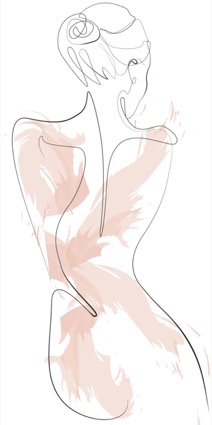By Caroline Helwick
Originally published by our sister publication, Gastroenterology & Endoscopy News
Las Vegas—A “potentially alarming” trend is being seen in the increasing incidence of pancreatic cancer among younger women relative to younger men, according to researchers who presented population-based data at the 2021 annual meeting of the American College of Gastroenterology.
“If current trends persist, the incidence rate of pancreatic cancer in younger women is estimated to be 400% that of men by 2040,” said investigator Yazan Abboud, MD, a postdoctoral research fellow in the Pancreaticobiliary Program at Cedars-Sinai Medical Center, in Los Angeles.
According to senior investigator Srinivas Gaddam, MD, an assistant professor of medicine at Cedars-Sinai, this is the first report using current data showing pancreatic cancer is “increasing dramatically” in women younger than 50 years. “The findings are most dramatic in women younger than 35,” he noted.

Changing Incidence Over 2 Decades
A modest increase in this malignancy has been noted for years, but data are limited on sex-based time trends. Dr. Abboud and his colleagues performed a time trend analysis of pancreatic cancer incidence rates (IRs) in the Surveillance, Epidemiology, and End Results (SEER) 21 database. They calculated IRs of the disease per 100,000 population for the years 2000 to 2018, stratified by age and sex (abstract P0009). They also estimated the annual percentage change (APC) and average APC (AAPC).
The researchers identified 283,817 cases of pancreatic cancer (50% women) and found that their AAPCs reflected a significant increase in IRs among women (0.72) and men (0.87) over the past two decades.
“The trends were parallel (P=0.28), suggesting that sex-specific IRs are increasing at the same rate. However, stratified analysis of different age groups showed a variation of trends between sexes,” Dr. Abboud said.
In the age group 50 years and older, the IR increase was greater in men than women, but the absolute AAPC difference was modest (0.26). However, in individuals younger than 50 years of age, this sex-based trend was reversed, and women showed a significantly larger increase in incidence compared with men, with a greater absolute AAPC difference (1.40).
“To evaluate the subgroup contributing to this reversal of trend, we analyzed the 15- to 34-year-old pancreatic cancer patients,” Dr. Abboud said. “Younger women were found to have a much greater increase than men (P=0.01). The magnitude of absolute AAPC difference was 3.48, suggesting a rapid increase in incidence,” he said, adding that persistence of this trend would amount to a 400% increase over men in 20 years.
Updated Numbers in Published Study
In a November issue of JAMA (2021;326[20]: 2075-2077), the investigators reported data showing changes among people aged 15 to 54 years, based on the notion that “younger” cancer patients usually are defined as those under 55, Dr. Gaddam pointed out.
In that analysis, the overall AAPC increased by 0.78% in women and 0.90% in men, reflecting no significant difference by sex. In contrast, In women younger than 55, the AAPC was 1.93% versus 0.77% in men, showing a significant difference, he said.
Additionally, the AAPC among women aged 35 to 54 years increased by 1.56%, compared with 0.65% in men in the same age group. The rate of change in women aged 15 to 34 was 7.68%, compared with 4.20% in men.
Possible Explanations
Dr. Gaddam speculated that the underlying reason for this rise may be some form of disproportionate exposure to environmental factors in women, or perhaps other unknown risk factors. He and his team are hoping to find some answers and solutions to stop the upward trend and are analyzing data from other large national databases.
Meanwhile, he cautioned that the incidence of this cancer is “still very low in younger people,” and emphasized that abdominal pain in young women is not likely to be pancreatic cancer.
Pancreatic cancer specialist Laleh Melstrom, MD, MS, the chief of the Division of Surgical Oncology at City of Hope, in Duarte, Calif., called the findings “very interesting and somewhat surprising.”
Pointing out that the median age of onset of pancreatic cancer remains in the 60s and 70s, she said, “this sharp increase in young women does not have a clear explanation and is very much hypothesis-generating.”
Dr. Melstrom said that “the traditional risk factors of smoking, obesity and pancreatitis could perhaps be associated with a greater rise in younger women. However, this is not a clear association that has been at all established.” She added that the study results echo findings of increased colorectal cancer in younger age groups.


Please log in to post a comment